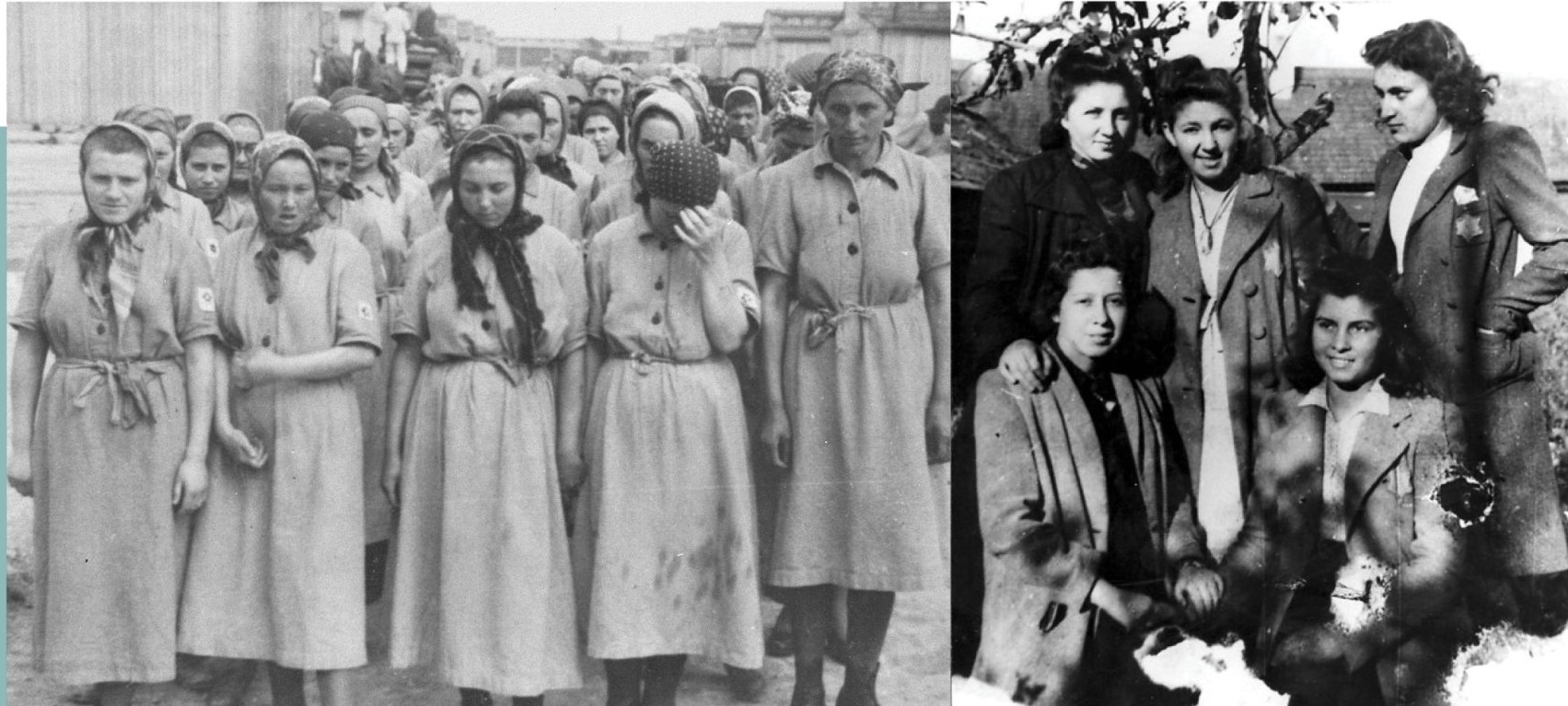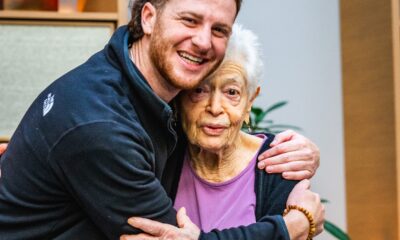
Holocaust

Double danger, double courage of women in Holocaust
Jewish women faced a “double risk” in trying to survive the Holocaust, Dr Yaron Nir Freisager told the Johannesburg Holocaust & Genocide Centre, citing various testimonials.
Nir Freisager, who lectures at Tel-Hai Academic College as well as at a high school in Kiryat Shmona, was speaking in honour of Women’s Day on 9 August.
He said the Nazis targeted men first to be eliminated as they were seen to be more dangerous, so men often had to stay home while the women went out to work and provide for their families.
Nir Freisager cited Emanuel Ringelblum, the head of the secret Oneg Shabbat archive in the Warsaw ghetto, who wrote in his diary at the beginning of January 1940, “The endurance of women. The main breadwinners. The men do not go out … [the woman] is not afraid of the soldiers. She stands in the long lines. When it is necessary, she goes to the headquarters of the Gestapo. The woman is everywhere since the man is taken to all kinds of works.”
Said Nir Freisager, “The women were now at the forefront. They were the ones who stood in line or turned to the Polish and German officials with a request to release the fathers from detention or deportation.”
He cited famous Holocaust researcher Raul Hilberg who referred to the ghettos as, “A new and isolated society [which] consists of men without power and women without support.”
Said Nir Freisager, “Starvation tore families apart, many died, and family stability was damaged. Evidence shows that men and women cope differently with hunger.” One example he gave of this was the testimony of Israel Aviram, which details how a fight between his parents arose over whether they would eat non-kosher meat, the mother wanting to maintain kashrut. This caused irreparable damage to their relationship.
He told the story of David Shirakowiak, a teenager from the Lodz ghetto, who wrote in his diary about his mother sacrificing her portion of bread for his father, who was also stealing bread from him and his sister. “I am very worried about mother, because she is terribly emaciated, shrivelled, and weak,” Shirakowiak wrote. “Nevertheless, she still works in the vegetable garden, cooks, and does laundry.” The following day, his mother was deported from the ghetto to Chełmno death camp along with “those unfit for work. She kissed each of us goodbye, took a bag with her bread and some potatoes that I forced her to take, and quickly left to her terrible fate. I could not muster the willpower to look at her through the window,” he said.
“There is little evidence of fathers stealing food from their families, but no evidence of mothers doing so,” said Nir Freisager.
He also discussed the struggle that pregnant women faced in the ghettos. “The very act of starvation and humiliation reduced the chance of giving birth to a healthy baby [and] many women who gave birth aborted the foetus to avoid punishment,” he said.
He told the story of Tova (Dubka) Waldhorn Freund, who was pregnant at the time when the Germans were prohibiting Jewish women from giving birth. “Her husband and the Jewish doctor asked her to terminate the pregnancy,” Nir Freisager said. “She refused because she was in love with her husband, Yulek, and wanted to give birth to his child. In the seventh month of pregnancy, she visited the hospital where the doctor urged her to deliver the baby and ‘get rid of him’ otherwise both she and the baby would die.” About a month later, she gave birth to a baby girl who was immediately taken away from her. Her husband was murdered at Kluga camp, but Dubka later remarried and had a son.
“The German treatment of Jewish men and women in the camps was apparently similar. Both sexes were uprooted from their homes, separated from their parents and children, and were brutally treated including shaving their hair, exposed to humiliation, hunger, and violence,” said Nir Freisager.
“However, gender was important, even critical already upon arrival at the camp, when a woman’s chance of surviving selection was significantly lower. Pregnant women and women with children were sent directly to the gas chambers. Women who survived the selection were transferred to camps where they were persecuted – they were humiliated on the basis of being women, they were sexually assaulted, and in general, their chances of survival were low.”
He told the story of Aliza Tsarfati and Ovadia Baruch, which he said was “a love story near the chimneys of the extermination camp” with tragedy, but also miracles.
Their story began in Auschwitz but was interrupted when Aliza was taken to Block 10, the medical-experiment block. “She was only sixteen and a half years old, and it was determined that she would undergo a sterilisation experiment,” he said. The surgeon was the Jewish doctor, Dr Maximilian Samuel, who Aliza begged not to go through with the experiment to no avail. “Dr Samuel told her to do her best to survive the war, and that she would remember him.”
Ovadia later asked for her hand in marriage, but Aliza refused because Ovadia was the only survivor of a large family and she wouldn’t be able to bear children. Eventually, they got married and immigrated to Israel. When Aliza’s belly began to grow, she was perplexed. “It turns out [that] Dr Maximilian Samuel took advantage of an anti-aircraft alarm that was on during the surgery. A few days later, he was executed because it was discovered that he was sabotaging the medical experiments that went on at Block 10.”
These are only a few of the many stories of immense bravery, compassion, and hardship that Nir Freisager shared from his research. Other stories include those of Sandra Brand, who saved her father’s shul from destruction by the Nazis; Rokhl Auerbakh, who initiated the excavation of the Oneg Shabbat’s buried manuscripts and wrote the important document “Yizkor, 1943”; Frumka Płotnicka, who worked for the Jewish underground in the ghettos; and Dr Adina Schweiger-Baldi, who administered the morphine that killed children who were hospitalised before they could be brutally killed by the Germans.
“Jewish women wrote a glorious page in history,” Ringelblum wrote. Women’s aim was “for three lines in a history book”, Nir Freisager said, quoting Dolek Liebeskind from the Krakow underground in Gusta Davidson’s Justina’s diary about the Jewish resistance. “I suggest that the women mentioned here this evening are worth more than three lines in a history book, maybe a whole page, probably a whole book.”










